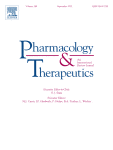I hope somebody smart can explain me in easy to understand words the following seemingly contradicting actions.
Peat has written about the dangers of acetylcholine, is positive about anticholinergics for (degenerative) brain issues.
However, thiamin which increases acetylcholine has also been implicated to help/cure pretty much every degenerate brain condition.
So what’s going on here? Can somebody explain me this?
Peat has written about the dangers of acetylcholine, is positive about anticholinergics for (degenerative) brain issues.
However, thiamin which increases acetylcholine has also been implicated to help/cure pretty much every degenerate brain condition.
So what’s going on here? Can somebody explain me this?



